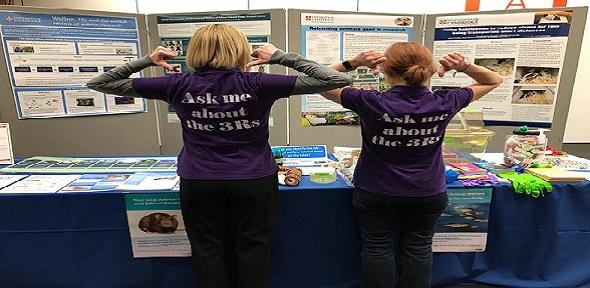
Our Vision for Public Engagement
The mission of the University of Cambridge is to contribute to society through the pursuit of education, learning and research. Public engagement in its broadest sense fulfils the University’s mission by creating bridges between the academic community and the public, locally, regionally, nationally and internationally.
The University defines public engagement as the many ways in which we share expertise, knowledge gained, resources and collections to both inform and inspire those we interact with while soliciting public input and participation in our work when appropriate.
The University of Cambridge as an institution values public engagement as an important aspect of academic endeavour.
Due to the historic culture of secrecy, and the misleading nature of some communications, there remains many misconceptions surrounding animal research. In 2013 Understanding Animal Research commissioned Ipsos MORI to conduct a public dialogue. The consensus from this was that people were supportive of more open and transparent communications on the use of animals in research. By 2014,the Concordat on Openness was launched. As a signatory of this Concordat, the University of Cambridge is committed to enhancing our communications on animal research, providing more and better information to the public.
Leaders in Openness (2025 – 2028)
Understanding Animal Research (UAR) recently announced the most recent Leaders in Openness and the University of Cambridge were delighted to be amongst 12 of those granted this status. Leaders in Openness are Concordat signatories who commit considerable resource and energy to following best practice, embedding openness within their organisations, and making the aims of the Concordat a reality. This year, the University of Cambridge were asked to reapply for Leadership status by submitting evidence to show how our communication activities were still sector-leading in 2025.
